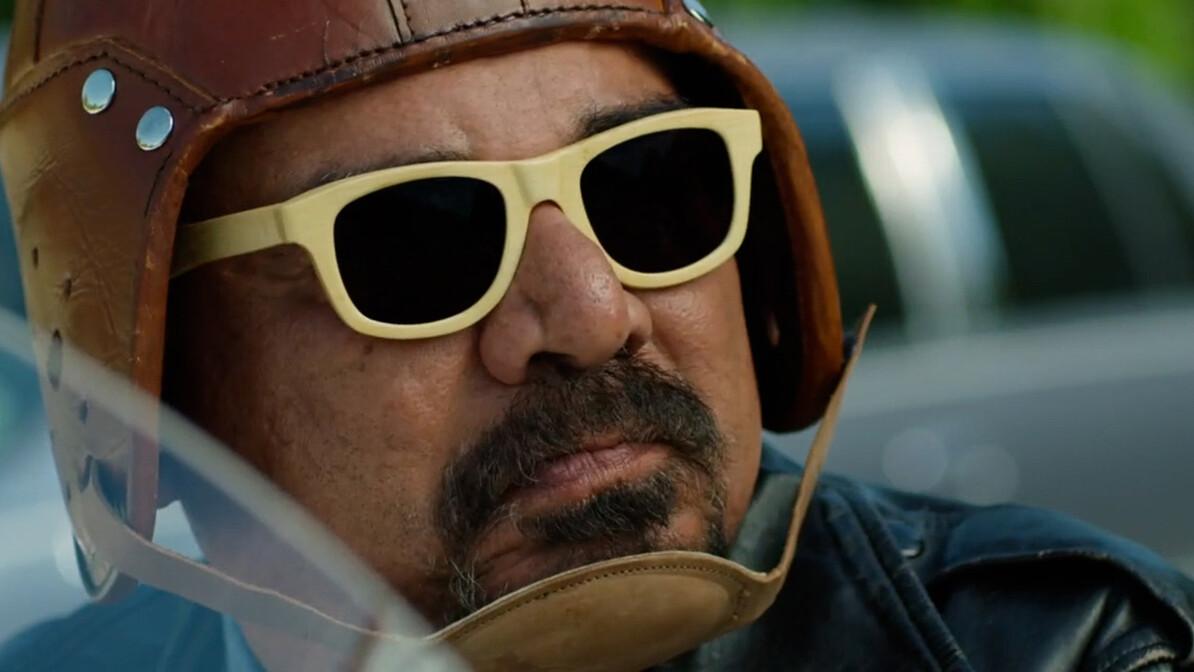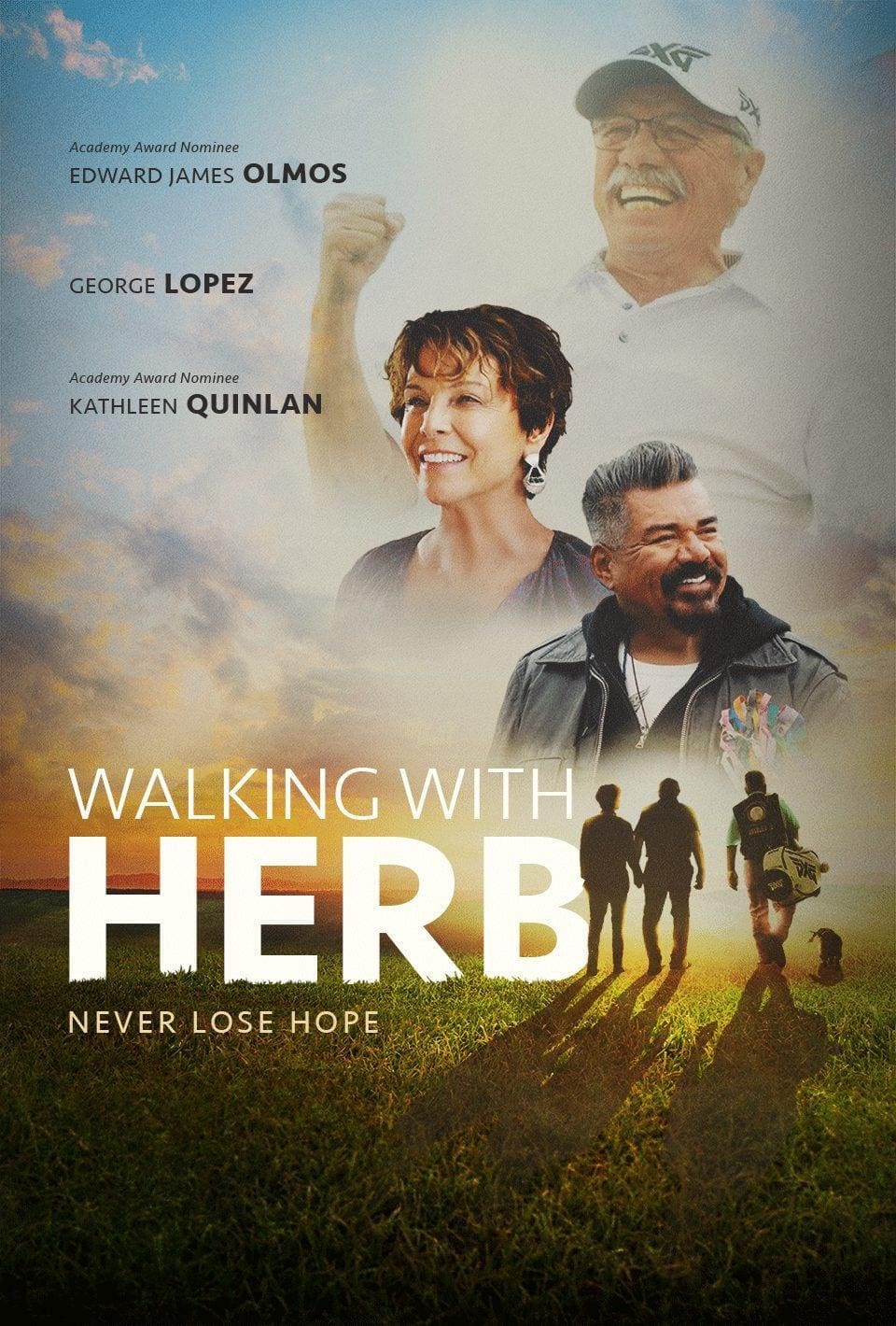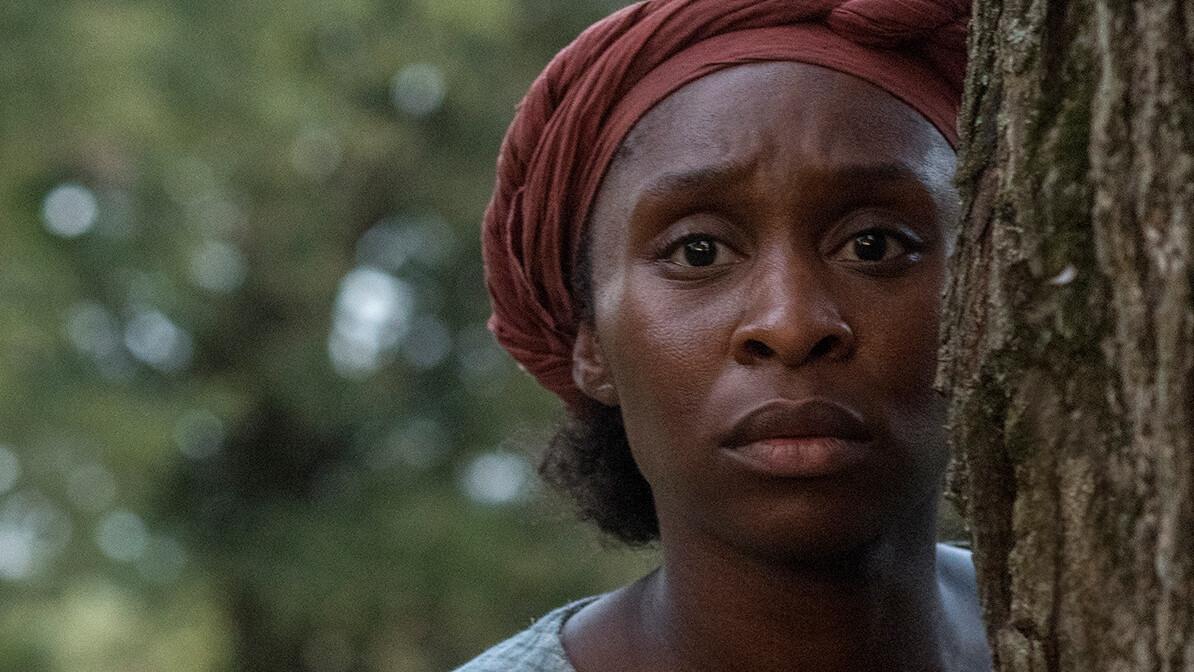- Home
- Entertainment
- George Lopez: God’s Messenger in Walking with Herb

George Lopez: God’s Messenger in Walking with Herb

John Farrell: Could you please tell me a little bit about your upcoming film Walking with Herb?
George Lopez: Walking with Herb was a book that Joe Bullock, who lives in Las Cruces, New Mexico, wrote about a golfer who had just missed continuing his career as a professional golfer. He ends up working in a bank. Like most people, he gets a job and has a child.
His daughter grows up and loses her husband, and they have some loss in their family. And Joe [Amable-Ano], played by Edward James Olmos, has just given up on his faith, on his humanity. He asks, “Why me? Why does this happen, if there’s a God? Why does He allow this to happen?”
I play Herb who is a messenger of God who knows – you know, God knows everything – so he knows that there’s someone who is lost and needs to be reminded that his faith can be restored if he believes. It’s the most complicated thing to do to get somebody else to see a vision that they’ve lost. And through the game of golf – the movie’s really not about golf – but through golf, as he starts to remember what it was like when he was good, you see his confidence build and you see it affect his wife and you see it affect his daughter and his whole life changes.
He enters this golf tournament, which he never thought he’d be good enough to play in, and he gets good enough to play in it. It’s quite a journey for him. Edward James Olmos is an Academy Award-nominated actor, so you can see the change in his spirit and the change in his life and the change of things around him when he starts to trust again.
JF: Would you say that’s the overall message most viewers will take from the movie?
George: It’s interesting because I think everybody has a different philosophy on what they believe. If we all believe the same thing, I don’t think we grow as much as people. But I hope that they take away that we’re all gonna suffer loss, and we all know how it’s going to end.
We don’t know between now and the end, but what I’ve taken away from this movie is to enjoy the things and the people that are around you while they’re living so that when something happens and they’re not around there isn’t regret. Sure, there’s going to be sadness, but there’s also going to be great memories of people.
I think of my grandparents every day and my grandpa has been gone for 33 years, and my grandmother for 12. As time goes by, it’s harder to remember them because time has a way of eroding memories. I can still remember them, but it gets harder as you get older.
JF: Absolutely! So, what about the story was attractive to you and how did you get attached to the project?
George: Mark Medoff, who wrote Children of a Lesser God, won an Academy Award for his writing, and he won a Tony Award on Broadway. Mark was agnostic and toward the end of his life he was ill. While he was doing the story, he had cancer. That had a lot to do with it. His credentials had a lot to do with it.
Edward James Olmos knew of the film, but didn’t know I was attached. And the only way that I would attach myself was if he attached himself. When he did, we had the nucleus of the movie, and then Kathleen Quinlan, who is also an Academy Award-nominated actress, joined on, and they have wonderful chemistry.
It was Mark who struggled to come to the set, but he was so happy. He would tell me, “You’re really making these words sing, and I’m so proud of what you’re doing.”
You know this guy is not going to be around much longer after we’re done – and it was shortly after that he passed. It was almost like having an angel there because this guy had written the words, had known the story, and was able to guide me through his words and his vision for what he turned into Walking with Herb.
JF: Could you please talk a little more about your character and what role he plays in pushing the film forward?
George: It’s interesting because there are a lot of comedians that became good actors, but the difference is sitting with Mark and having him break down his intention for Herb. It’s different from sitting in the back of a comedy club where the guy opens the door and goes, “Five minutes.” They’re completely polar opposite in preparation.
So, Herb is a messenger from God who has lived hundreds of years. They show up when someone is dire and they lose their faith, and God restores. He sends Herb down to enter Joe’s life, and he says, “Meet me here. We’re going to play golf.” I haven’t played golf in 30 years, well, it’s actually 35 years. I say, “I’ll see you tomorrow morning at 10.” So, I know everything.
He shows up and he hits one ball, and I’m like, “Okay, that’s enough for the day.” He goes, “I hit one ball.” I say, “I know. You see where it went? I’ll see you tomorrow. Come back tomorrow.”
He just moves him forward. In life, if you have somebody who’s a great friend to you and they’re in need, and whether you laugh when things are sad or whether you cry together, having somebody there makes all the difference. God knows that if you put somebody with somebody who’s lost some faith that they’ll connect and you don’t have to be a messenger from God to be God’s messenger.
JF: What role does faith play throughout the movie?
George: It’s very tough on someone when you lose a child and you lose a son-in-law. It feels like everything’s coming down on you. He just needed a little bit of help to clear the pain to see that every day and every morning you get up is a gift, and that as you move through life the people that you leave behind are your greatest gifts.
Herb restores the faith in Joe’s heart and he transfers that to his wife and his family. Then his daughter who had lost her husband and her child finds herself in love again and it’s beautiful. The last 15 minutes are very emotional for people.
There are really two endings in this movie. There’s one ending and then a few minutes later there’s another one. Very rarely do you see a movie that has two wonderful endings.
JF: I read that you had some say in Herb’s interesting wardrobe decisions. Can you tell me a little about that process that included some very eccentric costumes, which I believe added an interesting dimension to Herb?
George: I love music. I love disco music, but if I was able to go back to 1978 and go to Studio 54, I’m wearing the biggest shoes and the craziest color I could find. I’m going to wear a scarf, and I’m going to have big hair.
So Herb, not knowing where he’s going to be sent and then getting sent to the world of golf, it’s like how sometimes golfers can get a little stuck in their clothes, right? Remember that golfers also wore these plus fours [knickers], and great hats and shirts and ties. I think Herb just likes the colors of golf.
JF: Everyone knows about Hollywood magic and how movies inspired by true stories are adapted to fit the mold of a Hollywood movie. So, how accurate is the actual story to what we see on screen?
George: Mark Medoff, who wrote Children of a Lesser God and won an Academy Award and a Tony Award for that, is agnostic. He was ill at the time he wrote the script and knew that his life was probably not going to last much longer than it took to film the movie. For a guy to look like he was visibly very ill, but then to see the joy on his face, to see his words come true, and to see them happen and still be able to guide the narrative of what he meant. As an agnostic, I think as he started to get sick and started to feel unwell he started to restore his faith in things and see things differently, knowing that his life was coming toward the end.
JF: Did you get to meet the real-life Joe and his family? Were they on set a lot?
George: Yeah, Joe was around. His mother passed away in childbirth so he never met his mother. He was telling me that his father did everything for him and his brother. Knowing that his wife wasn’t there, he just became this happy guy who wanted to raise these two boys to men. To hear a guy revere his father so much – and his father’s gone – I don’t think I’ve ever heard somebody so beautifully describe their childhood and their father after losing his mother.
That’s magical that a guy would not be bitter in any way; that he would be happy. And then to see an agnostic take that story and adapt it, but also change his life toward the end of his life. Man, that’s a powerful message to carry forward. It caught me and I think it caught Eddie and Kathleen at the right time.
…
For more information on the movie, visit walkingwithherbmovie.com.
Trending Now
Sign up today for your Inspiration Today Daily Newsletter
Supercharge your faith and ignite your spirit. Find hope in God’s word. Receive your Inspiration Today newsletter now!
John Farrell
John Farrell serves as the Digital Content Manager at Inspiration Ministries, where he oversees the planning, organization, and management of website content to support the ministry's global digital outreach. With a strong background in writing and editorial strategy, John ensures that the articles, devotionals, and discipleship resources on Inspiration.org are accurate, engaging, and aligned with the ministry's mission.
John has authored more than 1,000 articles, press releases, and features for Inspiration Ministries, NASCAR, Lionel, and Speed Digital. His versatility as a writer is also showcased in his 2012 book, The Official NASCAR Trivia Book: With 1,001 Facts and Questions to Test Your Racing Knowledge.
A graduate of Appalachian State University, John brings excellence and attention to detail to the digital experience at Inspiration Ministries. He lives in Concord, N.C., with his wife and two sons.
Related Articles
March 10, 2025
Finding Total Victory on the Road to Championship
I have been playing competitive golf for 55 years. Through the various stages of my life, my…
March 7, 2025
Average Joe Movie: SCOTUS, Praying Football Coach Backstory
When Coach Joe Kennedy knelt to pray at the 50-yard line after a high school football game, he had…
February 28, 2025
The Power of Story: A Muslim Journey to Hope
Storytelling is one of the oldest and most powerful ways to touch the human heart. Parents tell…
February 27, 2025
‘Harriet’ Movie: Courage, Freedom, Faith
Antebellum abolitionist Harriet Tubman had convictions and courage that helped free herself…
Next Steps To Strengthen Your Walk
Inspiration Today Newsletter
Supercharge your faith and ignite your spirit. Find hope in God’s word. Receive your Inspiration Today newsletter now!
Christian Articles
Find articles to strengthen your walk and grow your faith. We have a wide range of topics and authors for you.
Submit A Prayer Request
We are here for you. Simply click on the button below to reach us by form, email or phone. Together we will lift our hearts and voices with you in prayer.





